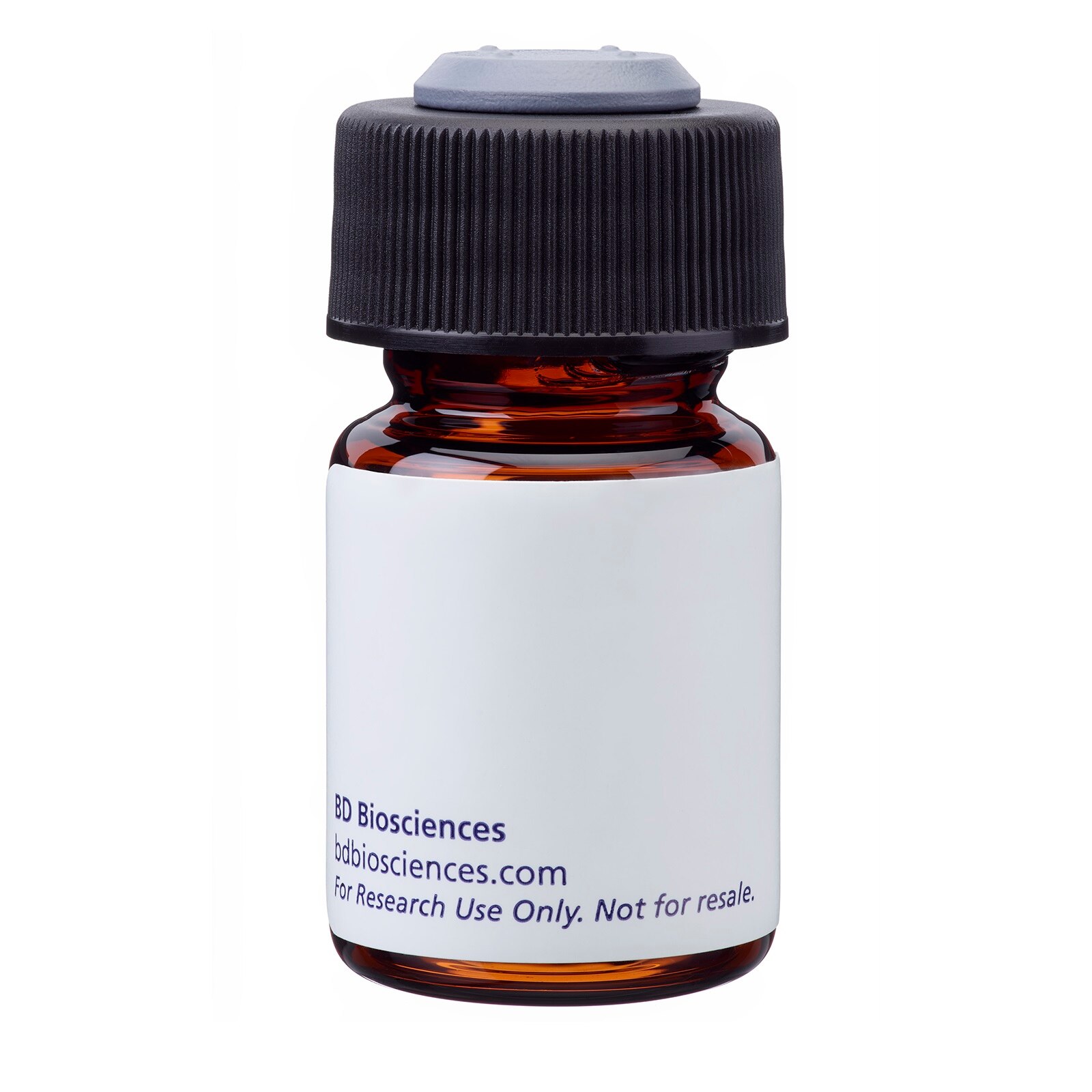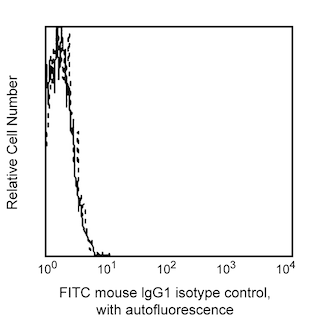Old Browser
This page has been recently translated and is available in French now.
Looks like you're visiting us from {countryName}.
Would you like to stay on the current country site or be switched to your country?




Flow cytometric analysis of CD49B expression on human peripheral blood platelets. Human platelets were stained with FITC Mouse Anti-Human CD49b (Cat. No. 555498; solid line histogram) or FITC Mouse IgG1, κ Isotype Control (Cat. No. 555748; dashed line histogram). Fluorescent histograms were derived from gated events with the side and forward light-scattering characteristics of viable platelets. Flow cytometry was performed on a BD FACScan™ system.


BD Pharmingen™ FITC Mouse Anti-Human CD49b

Regulatory Status Legend
Any use of products other than the permitted use without the express written authorization of Becton, Dickinson and Company is strictly prohibited.
Preparation And Storage
Product Notices
- Since applications vary, each investigator should titrate the reagent to obtain optimal results.
- An isotype control should be used at the same concentration as the antibody of interest.
- Source of all serum proteins is from USDA inspected abattoirs located in the United States.
- Caution: Sodium azide yields highly toxic hydrazoic acid under acidic conditions. Dilute azide compounds in running water before discarding to avoid accumulation of potentially explosive deposits in plumbing.
- For fluorochrome spectra and suitable instrument settings, please refer to our Multicolor Flow Cytometry web page at www.bdbiosciences.com/colors.
- Please refer to www.bdbiosciences.com/us/s/resources for technical protocols.
The AK-7 monoclonal antibody specifically binds to CD49b. CD49b is also known as integrin α2 chain, VLA-α2, and GP1a. CD49b is a type I transmembrane glycoprotein and belongs to the integrin family of extracellular matrix and cell-cell adhesion receptors. CD49b is expressed on numerous cell types including platelets, activated T cells, B cells, and monocytes. CD49b noncovalently associates with CD29 to form the VLA-2 complex (integrin α2/β1). The VLA-2 complex serves as a receptor for collagen and laminin. It can regulate responses mediated by proinflammatory effector cells.

Development References (3)
-
Hemler ME. VLA proteins in the integrin family: structures, functions, and their role on leukocytes. Annu Rev Immunol. 1990; 8:365-400. (Biology). View Reference
-
Knapp W. W. Knapp .. et al., ed. Leucocyte typing IV : white cell differentiation antigens. Oxford New York: Oxford University Press; 1989:1-1182.
-
Schlossman SF. Stuart F. Schlossman .. et al., ed. Leucocyte typing V : white cell differentiation antigens : proceedings of the fifth international workshop and conference held in Boston, USA, 3-7 November, 1993. Oxford: Oxford University Press; 1995.
Please refer to Support Documents for Quality Certificates
Global - Refer to manufacturer's instructions for use and related User Manuals and Technical data sheets before using this products as described
Comparisons, where applicable, are made against older BD Technology, manual methods or are general performance claims. Comparisons are not made against non-BD technologies, unless otherwise noted.
For Research Use Only. Not for use in diagnostic or therapeutic procedures.
Report a Site Issue
This form is intended to help us improve our website experience. For other support, please visit our Contact Us page.
